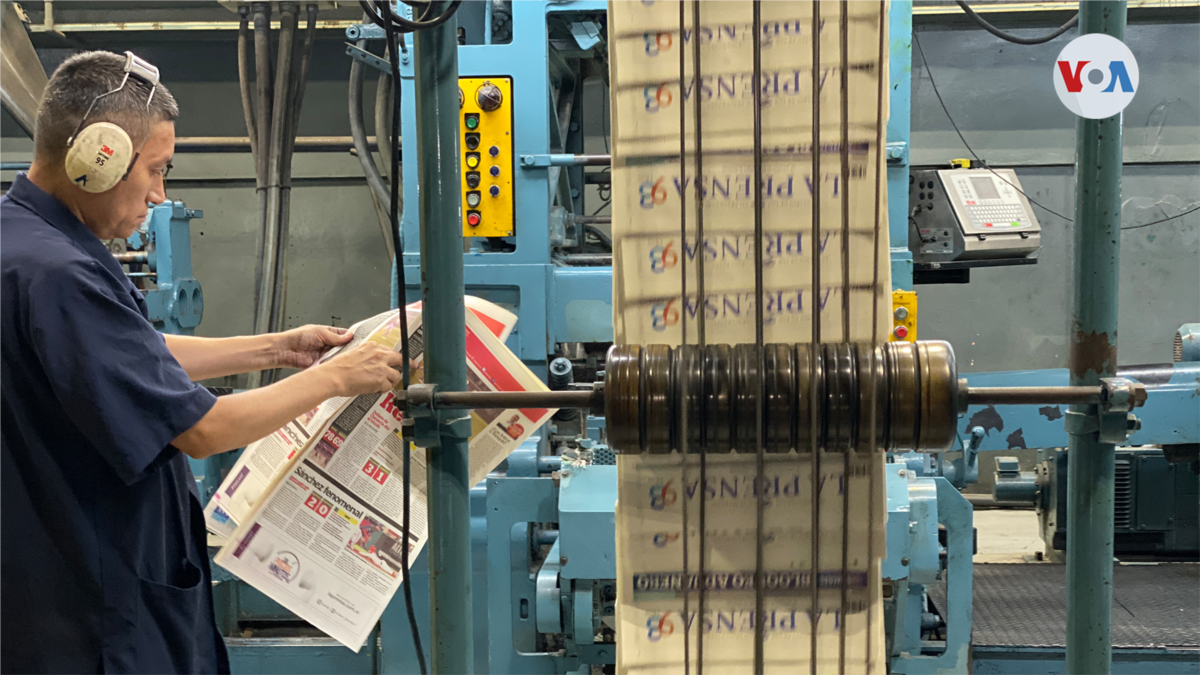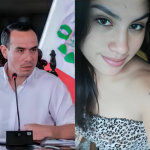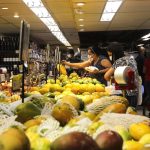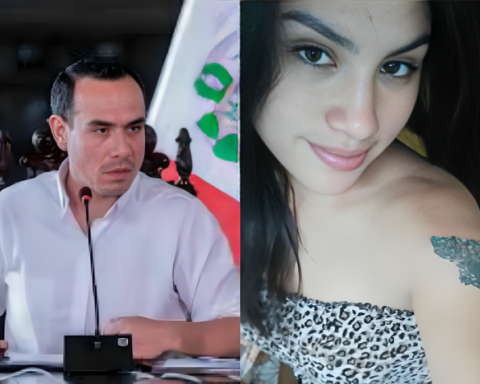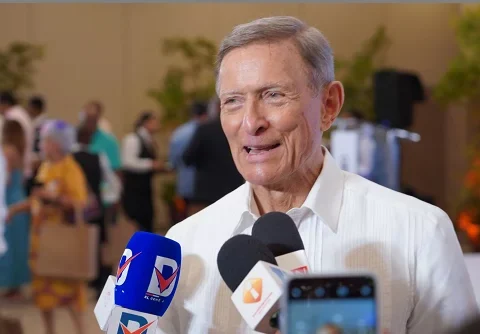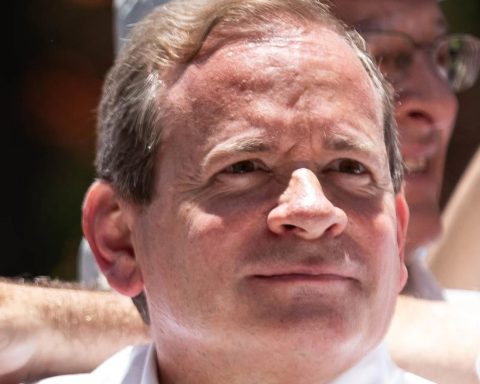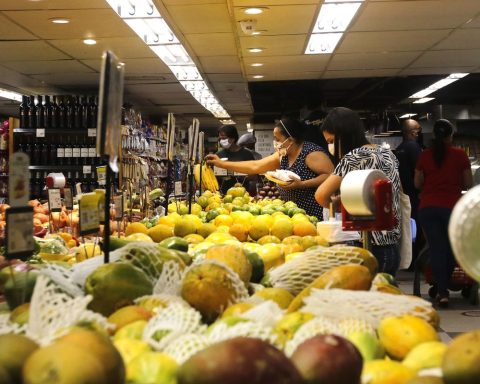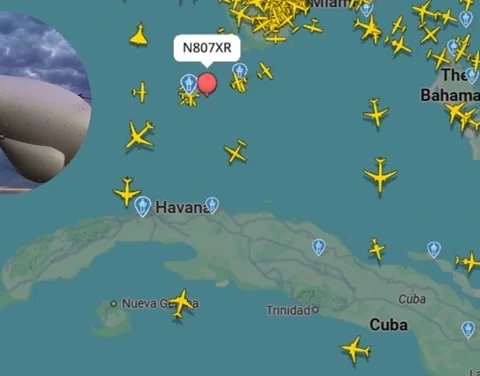Journalists and analysts say that Nicaragua is experiencing one of its worst moments for press freedom, with an entire newsroom in exile, more than a dozen media licenses revoked, and at least 120 journalists forced to flee the country.
“This is something we’ve never seen before,” he told the voice of america Eduardo Enríquez, editor-in-chief of The Press.
The Pressone of the oldest and most recognized newspapers in the country, moved its entire operation out of country in 2022 due to what he described as “the persecution of the Daniel Ortega regime.”
A year earlier, the police ransacked its offices in the capital, Managua, confiscated its printing press and arrested its director, Juan Lorenzo Holmann. He was prosecuted and convicted of money laundering in March 2022.
In August 2022, the First Lady and Vice President of Nicaragua, Rosario Murillo, announced that the newspaper’s offices would be confiscated by the State for use as a cultural center. In front of the official media, she described the old newsroom as a place where “crimes against humanity” are fabricated.
The experiences of The Press they are not isolated cases. Many journalists have been detained and others had their permits revoked.
“2022 has been the worst year for the independent press. Many of our colleagues are still detained,” said Víctor Manuel Pérez, director of Independent Journalists and Communicators of Nicaragua, the country’s largest union of journalists.
Pérez mentioned the case of sports commentator Miguel Mendoza, who in February 2022 was sentenced to nine years in prison for “acts that undermine the independence of Nicaragua.”
Mendoza covered sports news but also commented on human rights and politics, and was critical of the Ortega government, according to the Committee to Protect Journalists (CPJ).
Another renowned media owner, the founder of 100%News and opposition politician, Miguel Mora, was arrested just like Mendoza in 2021, accused of the same charges.
“The entire criminal process [contra Mendoza] it has been nothing more than a clear attempt by the authorities to silence anyone who dares to question them,” CPJ board member Natalie Southwick said in a statement at the time.
The Ortega government did not respond directly to the request for information made by the VOA. An email response from Vice President Murillo, who also serves as a government spokesperson, said “thank you for your interest” and wished “a merry Christmas to you and all your family.”
revoked licenses
Another challenge for the independent press arose from Telcor, the government entity dedicated to regulating telecommunications.
“Telcor is a political weapon to annihilate the independent press,” said Lucía Pineda Ubau, news director at the station 100%Newswhich today reports only from its website, after Telcor canceled its frequency in 2019, the year in which its transmission rights were suspended.
In the summer, Telcor revoked the licenses of at least 17 outlets, many of which were local radio and television stations. Some were linked to the Catholic Church, an institution that Ortega accused of conspiring against his government.
Radio Darío, an affiliate of the VOA, is one of the stations that lost its license. It was the most important radio station in the western part of the country, according to its director, Aníbal Toruño.
The station has been in business for more than seventy years and in recent years has survived arson attacks on its newsroom.
The government alleges that the media outlets in question have violated several laws and that some have modified “and altered” their frequencies, “which constitutes a reason for cancellation.”
Toruño maintains that such accusations are false and that the real objective was to “silence and shut them up.”
But said to VOA that, “far from intimidating us, their actions strengthen us”.
Self-censorship and silence
The lack of independent radio stations in Nicaragua impacts rural communities, where more than 2 million people live, according to data from the National Institute of Information for Development (INIDE), a government body in charge of economic research and censuses.
The rugged towns of Nicaragua rely on battery-powered radios to keep them informed on everything from local news to the weather.
“Sometimes, until we go to the city, we don’t realize what’s going on… We don’t know what’s going on,” he told the VOA Isabel Hernández, inhabitant of a rural area near the city of León, in the west of the country.
At the same time, the audiovisual media that still broadcast their programming are limiting their coverage.
“The few independent television channels, the most watched that remain in Nicaragua, have decided to suspend everything related to politics,” said Pedro Vaca Villarral, special rapporteur for freedom of expression at the service of the Inter-American Commission on Human Rights.
The risk of legal action or arrest is having an effect on the country’s media, analysts say.
In a report published earlier this year, the non-governmental organization, southern voicesrevealed that “many of the attacks that journalists experience are not visible” because reporters fear drawing attention.
The “self-censorship and silence of the victims” means that the attacks are working to silence the press, he said. southern voices. “More and more victims prefer silence … to avoid further attacks” that involve threats and the risk of arrest.
southern voices denounced the public’s lack of access to public information and data during the November regional elections as ways self-censorship affects audiences.
international pressure
The pressure is not only limited to the local media.
In September, Cnn in Spanish announced that the government had taken their signal off the air after accusing them of “interference” and “violating” Nicaraguan laws.
Two months later, the Ortega government denied entry to Luis Felipe Palaciosa Nicaraguan citizen who works as a correspondent for the Spanish news agency EFE.
Palacios was in Panama for a business trip in November and when he tried to return on a flight from Miami to Managua, his email notified that “entry had not been authorized.”
Vilma Núñez, director of the Nicaraguan Center for Human Rights, told the VOA that the Ortega administration turned these practices into “increasingly frequent routines.”
“Nicaraguan journalism suffers the most repressive period in its history,” said Enríquez de The Press. “But not only journalism suffers; the Catholic Church suffers, the whole of society suffers.”
Connect with the Voice of America! Subscribe to our channel Youtube and activate notifications, or follow us on social networks: Facebook, Twitter and instagram.
